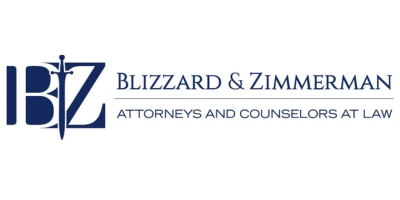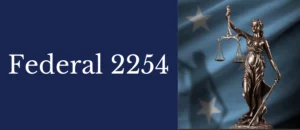In the United States legal system, the pursuit of justice doesn’t end with a state criminal conviction and a federal 2254 petition could lead to freedom. For Texas individuals (or any individual prosecuted in any state if the United States) who believe they have been wrongfully convicted or whose rights have been violated during the trial process, there are avenues for seeking redress. One crucial mechanism for challenging state convictions and seeking post-trial relief are the 2254 federal post-conviction appeal. In this post, we’ll dig into this process and how it relates to a state conviction, exploring its significance, procedures, and considerations for navigating the complex terrain of criminal justice.
Understanding 2254 Federal Post-Conviction Appeals
28 U.S.C. § 2254 provides a pathway for state prisoners to challenge the lawfulness of their incarceration in federal court to seek freedom. This statute allows individuals convicted in state courts to file a petition for a writ of habeas corpus, asserting that their imprisonment violates United States federal law or the US Constitution. While state courts primarily handle criminal trials and appeals, the 2254 federal post-conviction appeal serves as a safeguard against potential violations of federal rights during the trial process.
Key Aspects of 2254 Appeals:
- Exhaustion of State Remedies: Before seeking federal habeas relief under 2254, petitioners must typically exhaust ALL available remedies in state court, including:
- Direct appeals and
- State post-conviction proceedings
- Timeliness: There are strict time limits for filing a 2254 petition, typically within one year from the date the conviction becomes final.
- Procedural Requirements: Petitioners must adhere to various procedural rules, including presenting claims that were properly raised and exhausted in state court and addressing any procedural defaults.
- Grounds for Relief: Common grounds for relief under 2254 include:
- Violations of constitutional rights
- Ineffective assistance of counsel
- Prosecutorial misconduct
- Newly discovered evidence
Timeliness is of utmost importance with a 2254 and its procedural requirements. In most cases, a petitioner must file their appeal within ONE YEAR of their conviction becoming final. Moreover, federal courts will not consider any claim that was not already raised in state court, unless the petitioner can show that there was good cause for the failure to raise the claim, and that the failure to raise the claim resulted in actual prejudice. These procedural hurdles make it all the more essential to work with an experienced post-conviction attorney who can help you navigate the complex requirements.
Another important aspect of a 2254 appeal is that the court will only grant relief if the petitioner can demonstrate that this her constitutional rights were violated in the underlying trial. For example, a petitioner may argue that their trial counsel was ineffective, or that they were coerced into pleading guilty. Their may also argue that evidence was improperly admitted or that they were denied a fair trial due to the prosecutor’s misconduct. Any claim must be supported by factual allegations as well as legal arguments.
Considerations for Petitioners:
– Thorough Legal Analysis: Conducting comprehensive legal research to identify potential grounds for relief and relevant legal precedents.
– Strategic Planning: Crafting persuasive arguments and procedural strategies tailored to the specific circumstances of the case.
– Collaboration with Legal Professionals: We suggest engaging experienced attorneys specializing in post-conviction litigation to navigate the complexities of the legal process effectively.
– Persistence and Resilience: Recognizing that seeking post-conviction relief is often a lengthy and challenging journey that does perseverance and determination.
Search For Justice Beyond Trial Court
The pursuit of justice extends beyond the state trial courtroom, encompassing federal post-conviction appeals under 2254. For individuals seeking to challenge wrongful convictions or constitutional violations, this avenue offers hope and opportunity for redress. By understanding the procedural requirements, legal standards, and strategic considerations involved, petitioners can navigate the complexities of the criminal justice system with greater clarity and confidence, ultimately striving to uphold the principles of fairness, equity, and accountability.


